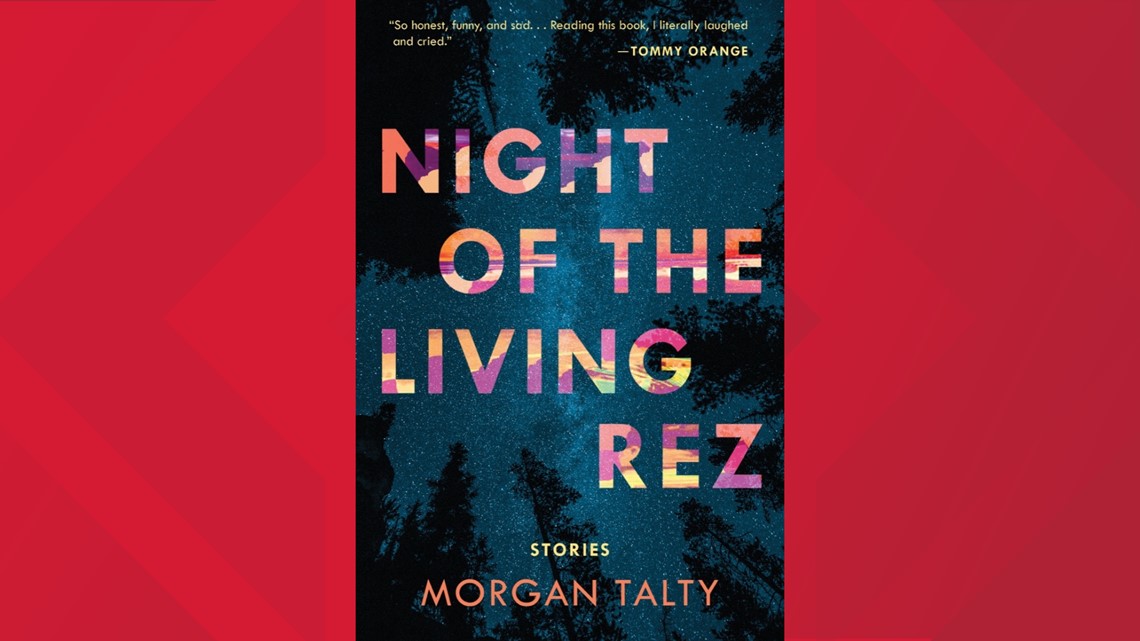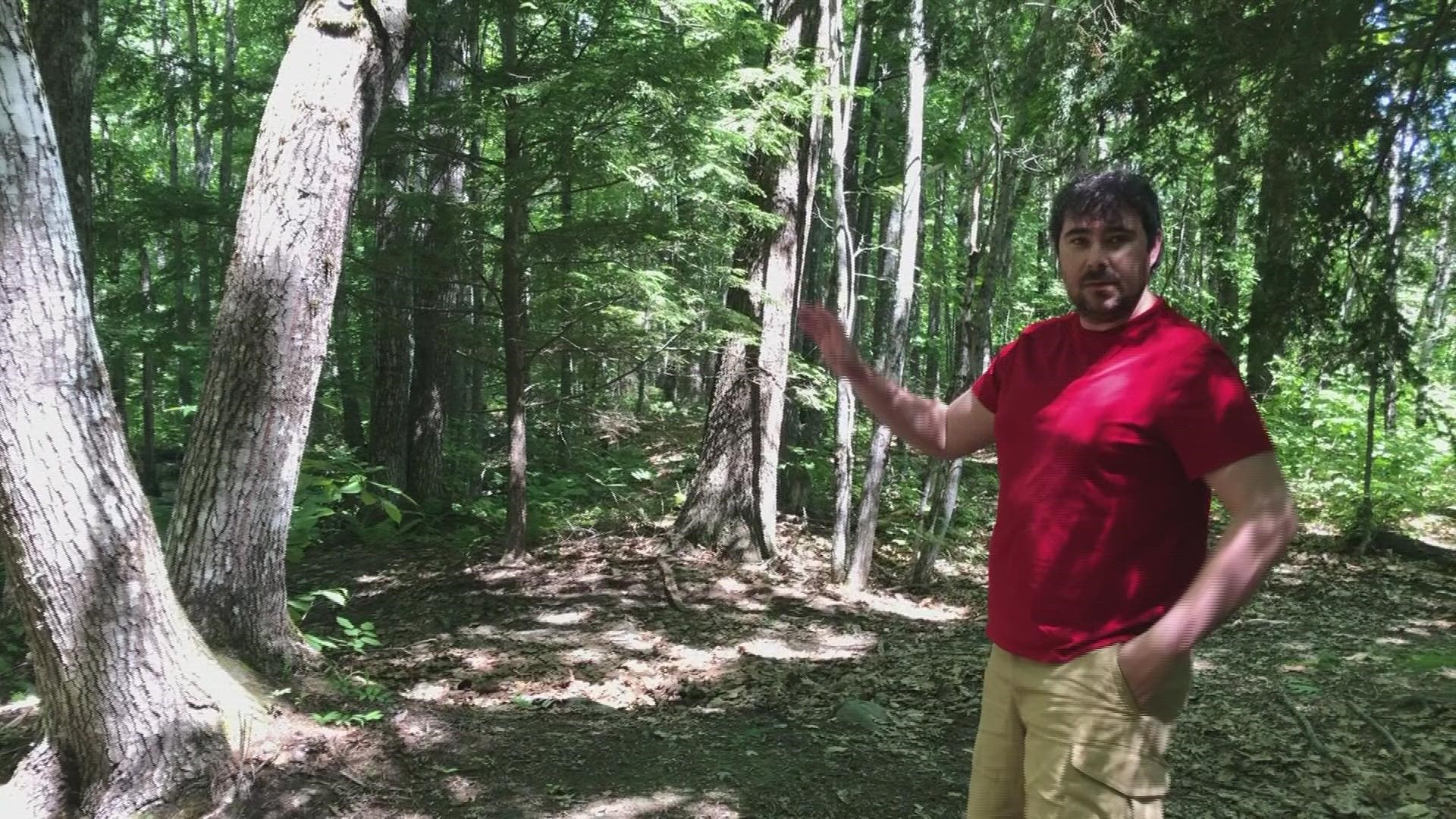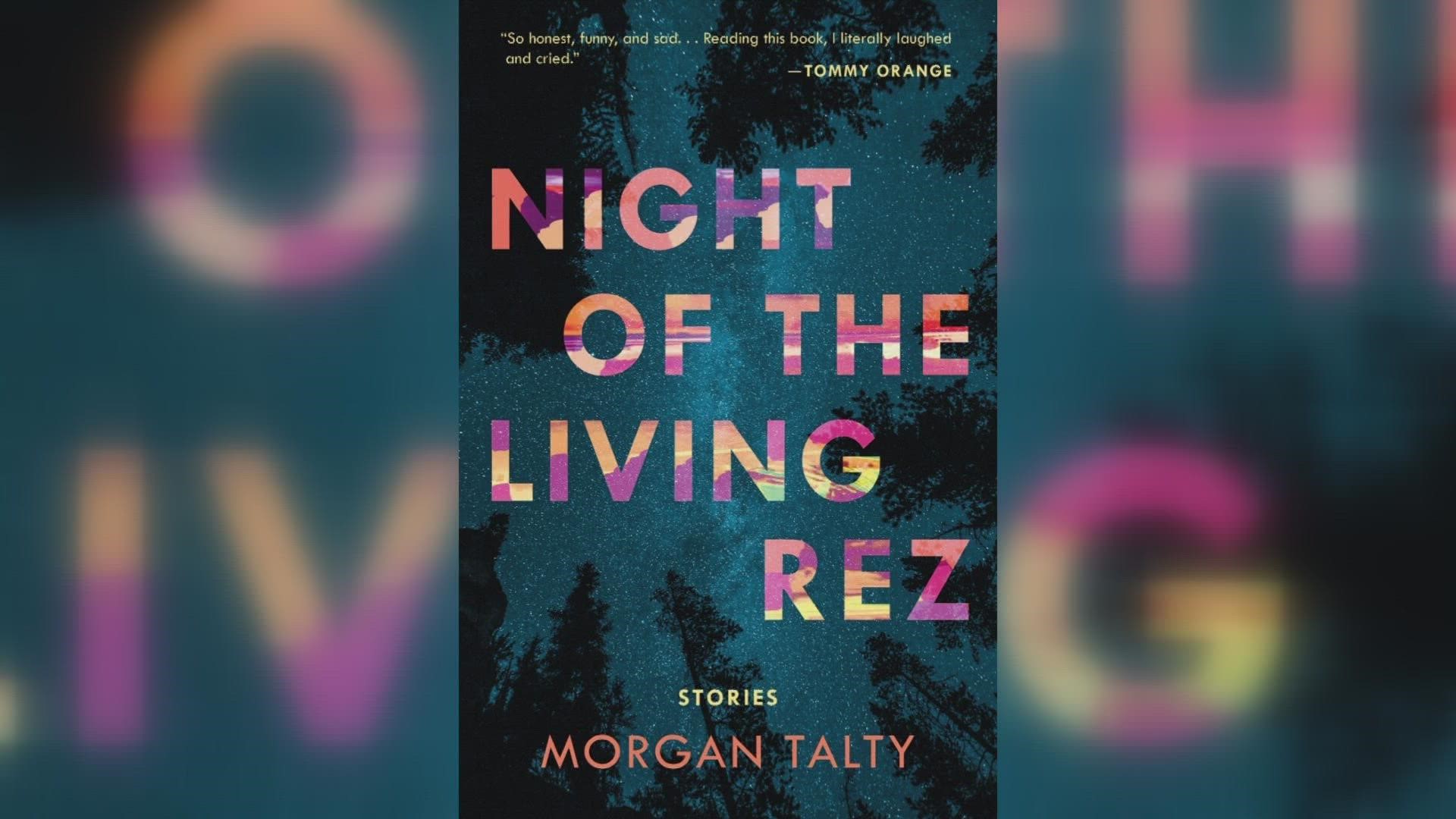PENOBSCOT COUNTY, Maine — Thirteen years after leaving the Penobscot Nation for college, Morgan Talty is drawing starred reviews for his collection of stories, "Night of the Living Rez," in advance of its July 5 publication.
The 12 stories about growing up on a reservation just over the bridge from "Overton" are based in part on Talty's own experiences.
Kirkus called the collection an "unsparing perspective on the harsh reality of life in the Panawahpskek (Penobscot) Nation of Maine."
Talty's tales share the culture of the Penobscot Nation and often echo his own experiences, but he said that "harsh reality" reflects the "human condition."
"One of the things I feel like can happen with marginalized voices writing for mainstream white readership is that they’re expected to perform,” Talty told NEWS CENTER Maine. “They’re expected to create a world that a white readership is familiar with and that may not be a true depiction. I never saw it as my work to perform to make this 'an Indian story.' I was just so dedicated to the characters and their lives. The things I knew and experienced were second-nature. They were just easily accessible for me to put into the work in a way that felt true and not manipulative."
Down a dirt road on Indian Island, Talty, now 31, pointed to a network of dirt paths where he ran and played and battled as a child, much like the character "David" in "Smokes Last."
"There’s David, JP, and Tyson, and they’re having a battle, as they call it," he said of the story. "We used to do that. There used to be about eight of us. We made shields out of wood and like a crutch, and we’d come down here. There was no teams; it was just pretty much every man for themselves. You’d go around and collect sticks. I don’t know what the point was. We never really finished a full game. It was just when we got tired or somebody got too hurt.”
Further down one path that eventually ends when the island does, Talty and his friends swam from a small beach on the Penobscot River.
"In the summers and stuff we'd come and hang out here. And even in the winters, when this was all frozen over, we would walk out and … not the greatest idea, especially when you would hear it crack," he said of the ice. "It used to be great to come out here in the wintertime because up on this part, there would be sheets of ice. It was just so much fun to put yourself in danger, I guess."
That beach is also the spot Talty envisioned for the ending of one of the more notable stories, "In a Jar."
"David’s is talking about the river rising up," he said. "It’d be taking what was buried."
As he described these adventures, a truck slowed. It was his second cousin stopping to congratulate Talty on his book. Within minutes, another truck stopped. This time it was Talty's Uncle Mike, a police officer on the island.
“Congratulations on your book there, buddy,” he said as he rolled down his window. “Where can I get one?”
Talty grew up largely on Indian Island, on a quiet street in one of a long, low row of ranch houses. Like David, Talty’s mother had a boyfriend who was a part-time medicine man. He remembers his mother covering dirty dishes in the sink with a cloth to keep spirits, or “goog'ooks," away. His mother's boyfriend would tie red, white, black, and yellow cloths around a tree in the backyard to keep the "bad medicine out.”
But Talty was quick to say the stories are not autobiographical.
“Sometimes these stories have little tiny realistic crumbs that got me going," he said. "Other times there were large explosive moments that weren’t the inspiration behind the story but just happened to work with them.”


But other stories and characters are simply storytelling, crafted as an undergraduate at Dartmouth College and then while earning a master's of fine arts from Stonecoast at the University of Southern Maine.
The story "Burn" is based on a story Talty heard about a man whose hair froze to the ground, he said. An infestation of caterpillars in another was a story out of Aroostook County.
While the reviews are gratifying, Talty said those who see the stories as reflective of the Penobscot Nation or the Native American experience overall are falling into the trope of "exoticized foreknowledge" described by writer David Treuer.
"People come to the page with the idea that a few of these characters represent a whole population of the tribe," he said. "That generalization has its roots in a long history of colonial storytelling. It says a lot about how we've been taught to read."
"So many people who read the book say, 'It's this Penobscot story' or 'This story is about Penobscot people,' when really it’s about a couple of Penobscot people who are experiencing these specific tragedies to them, right," he said. "If we base a culture solely on a few people’s experiences, we don’t really see that whole culture. The book when it has cultural elements to it, when we think about the spirituality in the book, yeah, those things are a bit more universal to the population, but when it’s David and Dee and their struggles, it’s their struggles, right? It’s not saying anything about the tribe. It’s not saying anything about Indigenous people. It’s saying something about the human condition, more broadly: that anybody can struggle from this stuff."
Talty said the island community provided a home and a sense of hope, in part, he said, because he realized people everywhere struggled with similar problems.
Talty said he tried to see the hope in his characters' lives.
"I guess the hope for all of them has always just been the fact that they kind of stuck together, that they weren’t by themselves, there wasn’t just one character who was suffering with this problem," he said. "It was a cast of characters suffering with specific problems unique to themselves but also products of their own histories, right? Instead of a larger colonial one, even though that’s obviously something there that we have to think about."
Today, Talty lives in Levant with his wife. He teaches writing part-time at the University of Maine and at Stonecoast at the University of Southern Maine.
His most recent novel, “Fire, Exit,” is with his agent.
Talty will discuss "Night of the Living Rez" at 6 p.m. Wednesday (July 6) as part of the Portland Public Library Spotlight Lecture Series at Bunker Brewing Co., 17 Westfield St., Portland; and again at 6:30 p.m. Thursday (July 7) at the Bangor Public Library, 145 Harlow St., Bangor.
Here's an excerpt from Talty's book:


